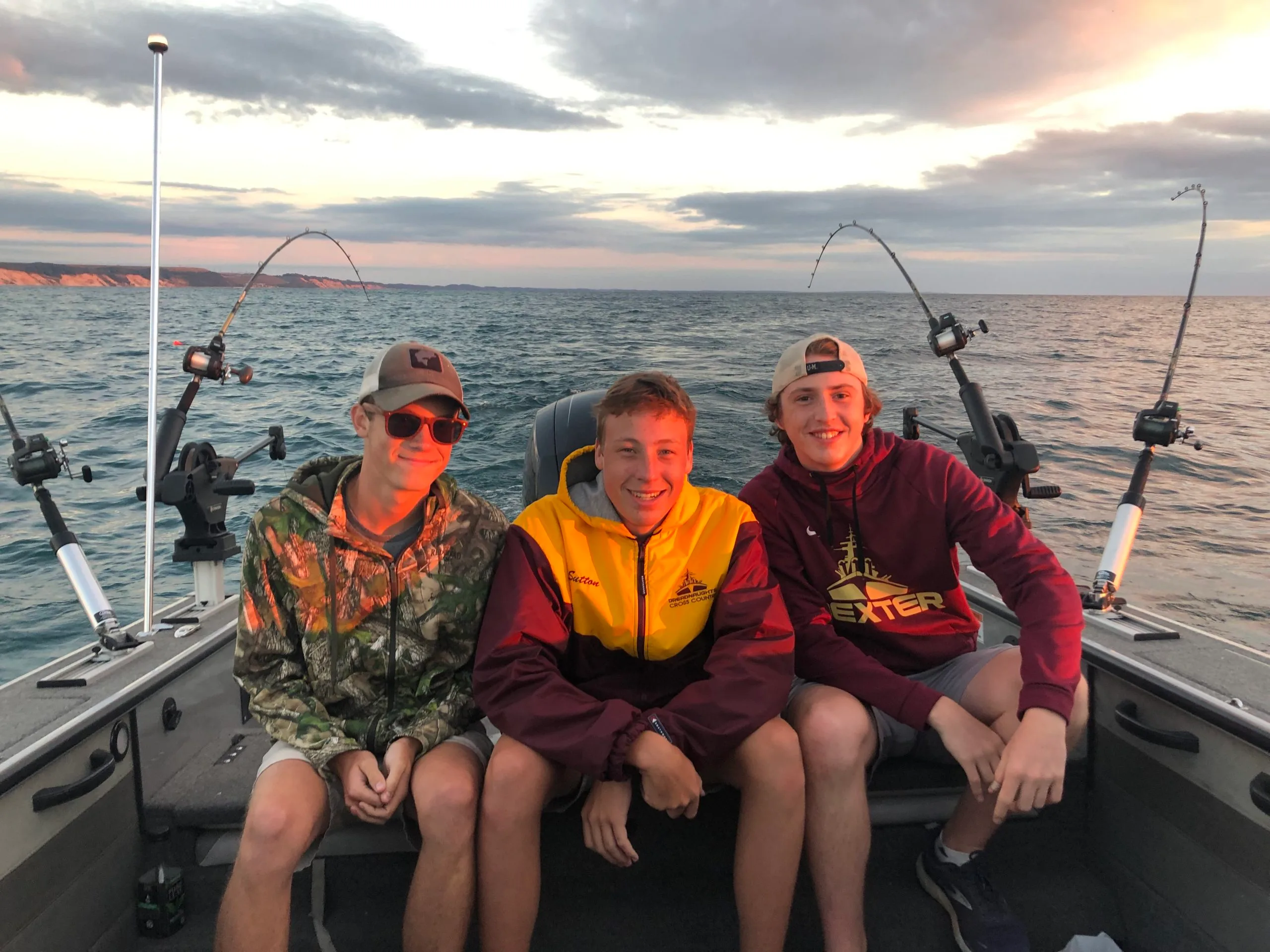Boating Safety Tips for Fishing Big Water from a Small Boat

* This page contains affiliate links. The Great Lakes Fisherman may earn a commission on items purchased through these links. For more on this, please click here.
Think you need a 24’+ boat to safely fish the big water? Think again! With the technology and resources available today, big lake fishing is not out of reach for those with boats in the 16-22′ class. But while the great lakes are a paradise for those who love to fish, they can be dangerous if not respected. Read on for 5 tips to keep you safe on the big water.
Tip #1: Standard Safety Gear
Before thinking about getting your boat on these large bodies of water, be sure to have all of your standard safety gear up to date. This includes the following:
- Life Vests (Including a Throwable)
- Up-to-Date Fire Extinguisher
- Flares & Horn in Good Working Order
- GPS Unit
- A Well-Stocked First Aid Kit
- Small Basic Tool Kit
- Properly Working Navigation Lights
Tip #2: Communication
The ability to communicate is key. You should understand the cell coverage of your phone in whichever port you decide to fish from. You can check message boards and ask fellow fisherman for this if you live far from the lake. Fisherman are great people and while some may not want to give you the GPS coordinates of their favorite hotspot, I know very few who wouldn’t help with answering basic safety questions.
Ship to shore radios provide a great added feature even where cell coverage is good. In areas where cell coverage is limited or non-existent, a ship to shore radio is essential. You definitely don’t want to venture out into great lakes waters with no communication.
Tip #3: Know the Weather Forecast
Understanding the weather forecast for the day you plan to fish the great lakes is vital. There are many resources available these days to ensure a safe and enjoyable day on the water. There is simply no excuse for not knowing. Not only should the basic forecast for the day be understood, but the wind forecast is particularly important. Be sure to know the maximum wind speeds, including gusts, as well as the wind direction and how it might change throughout the day.
Tip #4: Invest in a Kicker Motor
A kicker motor is a second, small outboard motor (typically less than 25 hp) that can provide two major benefits. First, it can be your primary motor for trolling and save your main engine from running long hours at idle speed. Secondly, and more importantly, it can become a back-up motor to get you off of the water, should your main engine fail.
Tip #5: Know When to Pull the Plug
Understanding your limits and recognizing potentially hazardous situations is the one of the most important of these tips. The fish will still be there tomorrow and you need to ensure that you and your crew will be as well. Never venture further from port than your boat can handle. The smaller the boat, the closer to port you should remain. If your cell phone dies and you are 4 miles out, you may want to head a little closer to port. If any of your safety equipment fails or goes down, it might be time to get off of the water. And finally, the wind is your enemy. Modern forecasts are good, but they are not perfect. If there is any unexpected shift in the weather, it might be time to go. Waves on the great lakes can kick up in a hurry.
Following these tips will help ensure a safe and enjoyable day doing what you love!
